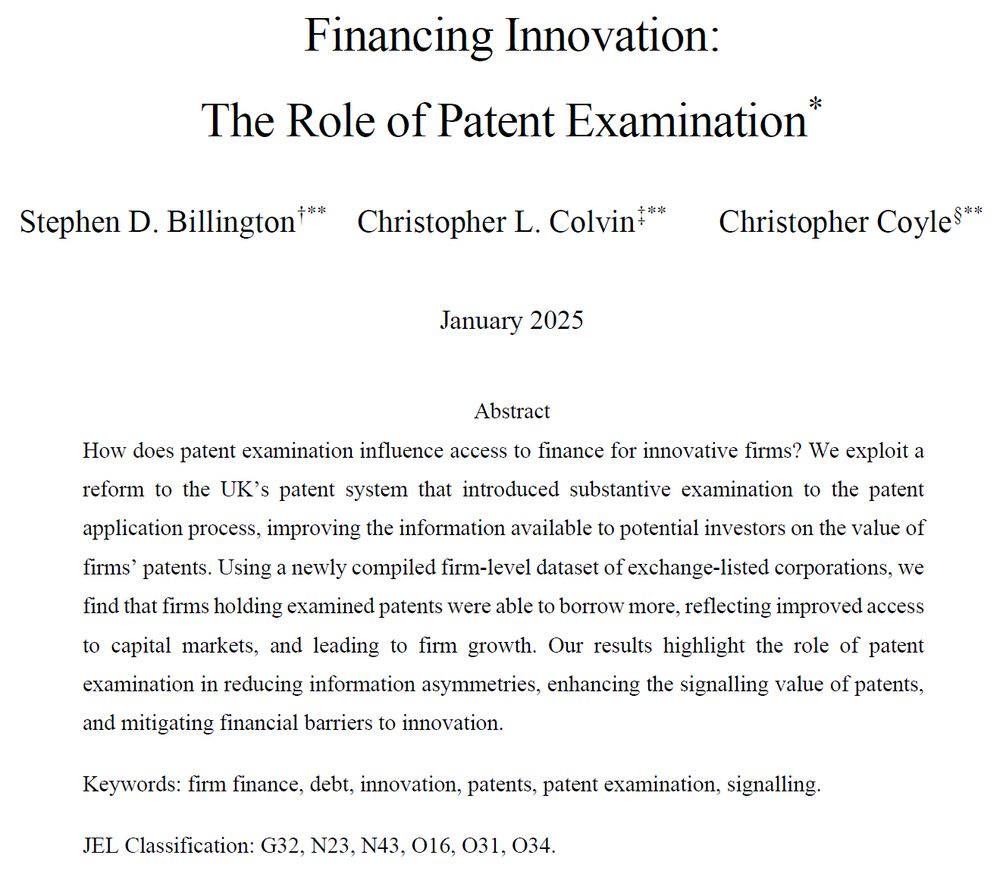
Economic Historian. Pro Futura Scientia Fellow at SCAS, Associate Professor at Lund University, and affiliate at the CEPR and IFN. Web: www.thorberger.se
Uppsala University; Swedish Collegium for Advanced Study; Lund University; Centre for Economic Policy Research; Research Institute of Industrial Economics • Regional Economics and Spatial Analysis, Intergenerational and Educational Inequality Studies, Innovation and Knowledge Management
Reposted by Richard S.J. Tol, David Brady, Mel Bartley , and 15 more Richard S.J. Tol, David Brady, Mel Bartley, Dave O’Brien, Pierre Bataille, Christian E. Weller, Kris Inwood, Frank van Tubergen, Valerie Mueller, Miles Corak, Neil Lee, Aaron Sojourner, David Bartram, Patrick Präg, Anton Grau Larsen, Peter Fallesen, Samuel Coavoux, Thor Berger


Looking for someone with strong quant methods, ongoing work close to the project's aims, and a desire to publish in sociology. Start flexible in the next 12 months.
Formal call out shortly, but contact me first.
Reposted by Kris Inwood, Joshua Goodman


Reposted by Rachel S. Franklin, Thor Berger


👉 Article: doi.org/10.1017/S000...
🧵1/X
Take the survey here: supsy.eu.qualtrics.com/jfe/form/SV_...
Thank you!!
Reposted by Dani Rodrik, Thor Berger

Reposted by Thor Berger

Reposted by Thor Berger
Here is the Cfp: www.dropbox.com/scl/fi/6xdmp...
Here is the Cfp: www.dropbox.com/scl/fi/6xdmp...
Reposted by Nathan Nunn, Evan Roberts, Thor Berger

Reposted by Thor Berger

Reposted by Sabrina Wulff Pabilonia, Thor Berger
Reposted by John D. Turner, Arnab Bhattacharjee, Thor Berger

Reposted by Mark E. Schaffer, Thor Berger

w/ @pdavidboll.bsky.social and @jvoth.bsky.social
Do you run regressions on spatial data? Then keep reading!
We present a guide and Stata package for methods by Müller and Watson (2024 ECTA) to deal with Spatial Unit Roots in Regressions.
Link in 🧵 (1/n)
Reposted by Olof Åslund, Randi Hjalmarsson, Joacim Tå̊g , and 1 more Olof Åslund, Randi Hjalmarsson, Joacim Tå̊g, Thor Berger

Elias Papaioannou! Call for papers with submission link: tinyurl.com/49tah8zd
Reposted by Thor Berger

Reposted by Thor Berger



